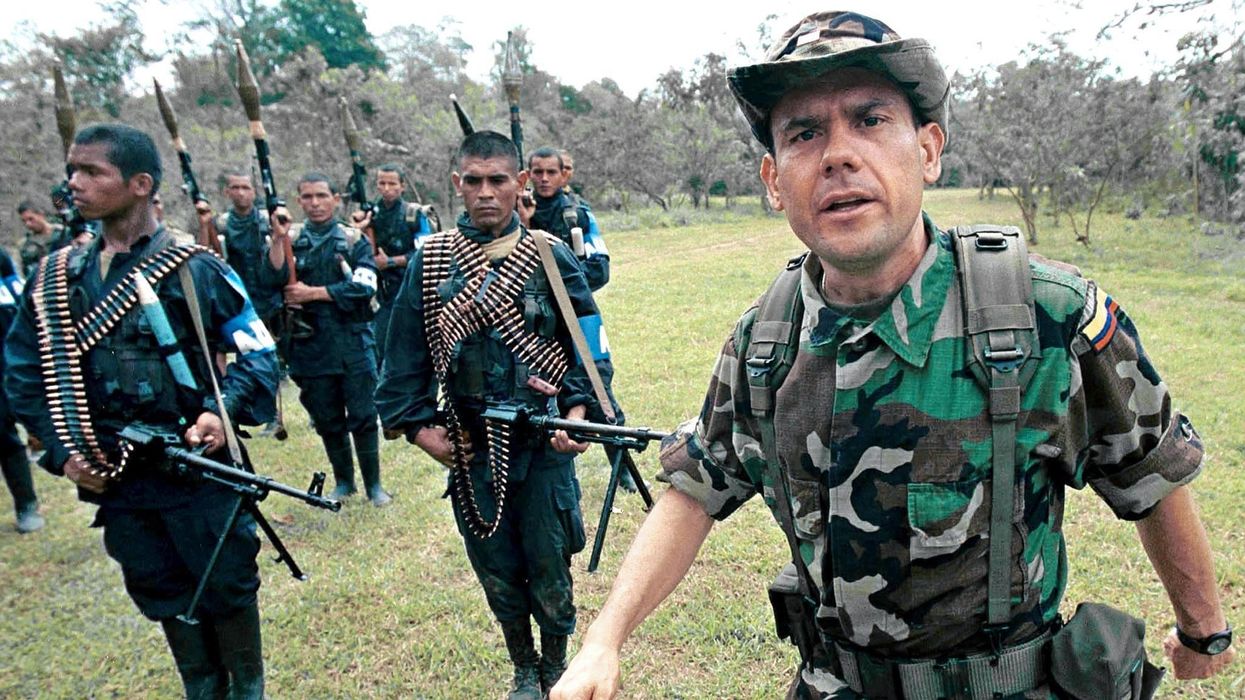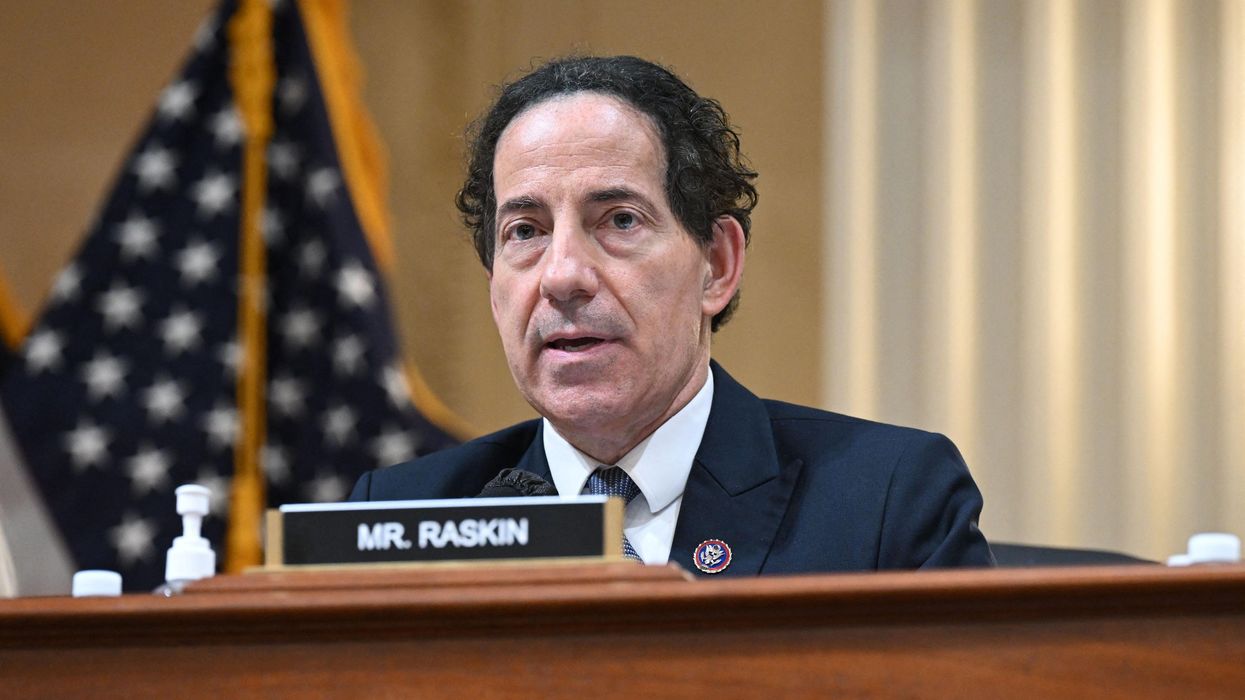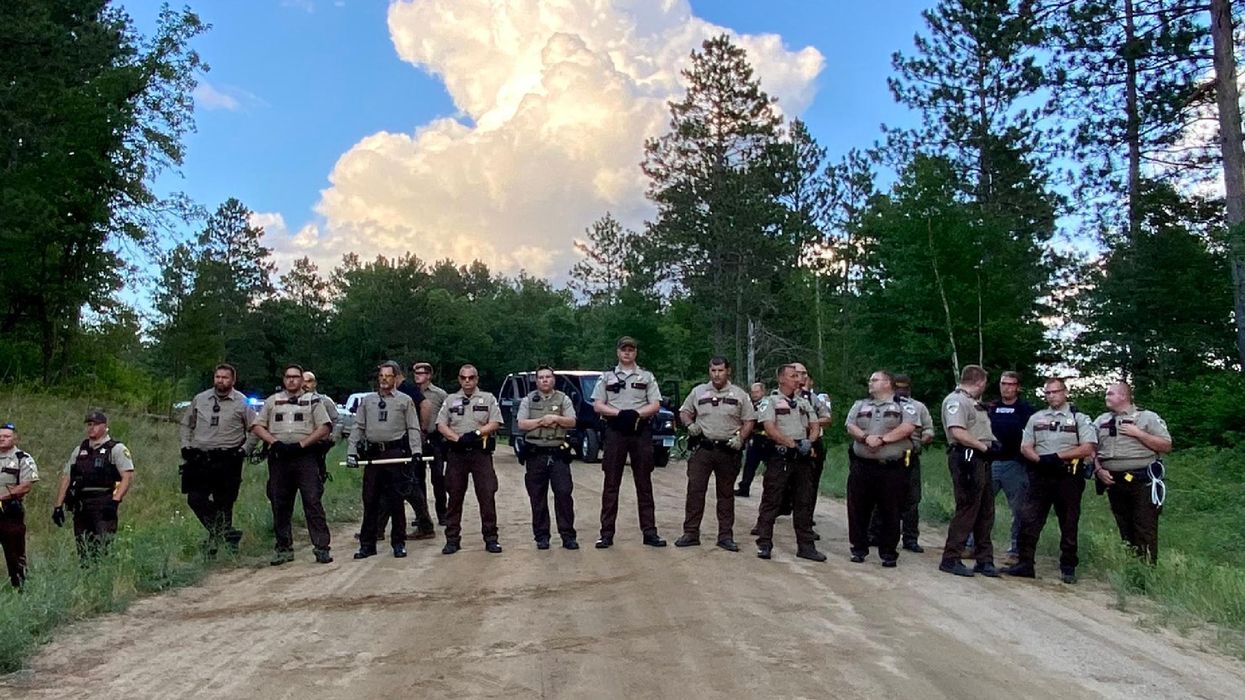US Jury Holds Chiquita Liable for Colombian Death Squad's Murder of Banana Workers
"The verdict does not bring back the husbands and sons who were killed," said one attorney, "but it sets the record straight and places accountability for funding terrorism where it belongs: at Chiquita's doorstep."
In what case litigants are calling the first time an American jury has held a U.S. corporation legally liable for atrocities abroad, federal jurors in Florida on Monday found that Chiquita Brands International financed a Colombian paramilitary death squad that murdered, tortured, and terrorized workers in a bid to crush labor unrest in the 1990s and 2000s.
The federal jury in West Palm Beach, Florida found the banana giant responsible for funding the United Self-Defense Forces of Colombia (AUC) and awarded eight families whose members were murdered by the right-wing paramilitary group $38.3 million in damages.
EarthRights International, which first filed the case—Doe v. Chiquita—in 2007,
called the verdict "a milestone for justice."
"The jury's decision reaffirms what we have long asserted: Chiquita knowingly financed the AUC, a designated terrorist organization, in pursuit of profit, despite the AUC's egregious human rights abuses," the group said.
"By providing over $1.7 million in illegal funding to the AUC from 1997 to 2004, Chiquita contributed to untold suffering and loss in the Colombian regions of Urabá and Magdalena, including the brutal murders of innocent civilians," EarthRights added. "This historic verdict also means some of the victims and families who suffered as a direct result of Chiquita's actions will finally be compensated."
One of the plaintiffs in the case called the verdict the "triumph of a process that has been going on for almost 17 years, for all of us who have suffered so much during these years."
Plaintiffs' attorney Agnieszka Fryszman said that "the verdict does not bring back the husbands and sons who were killed, but it sets the record straight and places accountability for funding terrorism where it belongs: at Chiquita's doorstep."
The U.S. labor reporting site More Perfect Union called the verdict "an unprecedented win against corporate violence, which could [be] the first of many."
A Chiquita spokesperson told Fruitnet that the company plans to appeal the verdict.
The AUC was formed in 1997 via the union of right-wing paramilitary groups battling leftist guerrillas—mainly the Revolutionary Armed Forces of Colombia (FARC) and National Liberation Army (ELN)—in the South American nation's civil war. Closely linked to Colombia's U.S.-backed military, the AUC—some of whose members were trained by Israelis—was designated a terrorist organization in 2001 by the U.S. State Department, which cited its "massacres, kidnappings of civilians, and participation in the trafficking of narcotics."
In 2007, Chiquita pleaded guilty in federal court to funding the AUC and agreed to pay a $25 million fine. The company admitted to paying the AUC via its wholly owned Colombian subsidiary, Banadex, which was also its most profitable operation. Chiquita recorded these transactions as "security payments" or payments for "security" or "security services" in its corporate records.
Chiquita said that it began making the payments after Carlos Castaño, who led the AUC at the time, implied that Banadex's employees and property could be harmed. However, despite—critics say because of—the payments, AUC members brutally targeted Banadex workers in what victims and their advocates say was an effort to suppress labor unrest.
An earlier lawsuit described the fate of one victim, who is identified by the pseudonym "Pablo Pérez":
In the early morning hours of November 1, 1997, a group of heavily armed paramilitaries dressed in camouflaged uniforms stormed Pablo Pérez's home in the village of Guacamayal, in the banana zone of Magdalena, while he was sleeping. The paramilitaries broke down the door to the home, found and seized him, tied him up, and forced him to accompany them at gunpoint, beating him as they kidnapped him. His corpse was found the following morning with signs of torture and two gunshots, one to the head and one to the body.
According to plaintiffs in that case, in 2001 a ship carrying 3,000 AK-47 assault rifles and 5 million rounds of ammunition left Nicaragua and, instead of heading to its declared destination in Panama, dropped off the arms at a Banadex-run port in Turbo, Colombia. Castaño called the procurement "the greatest achievement by the AUC so far."
The earlier lawsuit states that in addition to using the money provided by Chiquita to "drive the leftist guerrillas out of the Santa Marta and Uraba banana-growing regions," AUC militants would "resolve complaints and problems with banana workers and labor unions."
"Among other things, when individual banana workers became 'security problems,' Chiquita notified the AUC, which responded to the company's instructions by executing the individual," the document states. "According to AUC leaders, a large number of people were executed on Chiquita's instructions in the Santa Marta region."
Chiquita has a long history of deadly repression against workers. Formerly the United Fruit Company (UFC)—the infamous "Octopus"—the New Orleans-based behemoth monopolized land and markets throughout Latin America in the 20th century. Through slick marketing campaigns, UFC introduced the previously unknown banana to consumers in North America and beyond. The company propped up so-called "banana republics"—extraction economies characterized by state repression, severely stratified social classes, and compliant local plutocracies—throughout the region.
UFC stopped at nothing, including participation in U.S.-backed coups, to protect its property and profits. By the 1930s, UFC controlled around 90% of the U.S. banana import business. It owned or controlled nearly half of Guatemala's land in the 1940s.
In Colombia, where UFC workers earned the approximate equivalent of $1 per month, UFC refused to negotiate with workers who went on strike in 1928 in Ciénaga, near Santa Marta. U.S. and UFC officials falsely portrayed the strike as communist subversion and Colombia's right-wing government deployed 700 troops to crush the labor action. The U.S. Embassy subsequently informed then-Secretary of State Frank Kellogg that "I have the honor to report... that the total number of strikers killed by the Colombian military exceeded 1,000."
Violence against Colombian banana workers continued into the 21st century, often with impunity for the perpetrators. Litigants in Doe v. Chiquita said Monday's jury decision marked the beginning of a new era of accountability.
"This verdict sends a powerful message to corporations everywhere: profiting from human rights abuses will not go unpunished," EarthRights International general counsel Marco Simons said in a statement. "These families, victimized by armed groups and corporations, asserted their power and prevailed in the judicial process."


